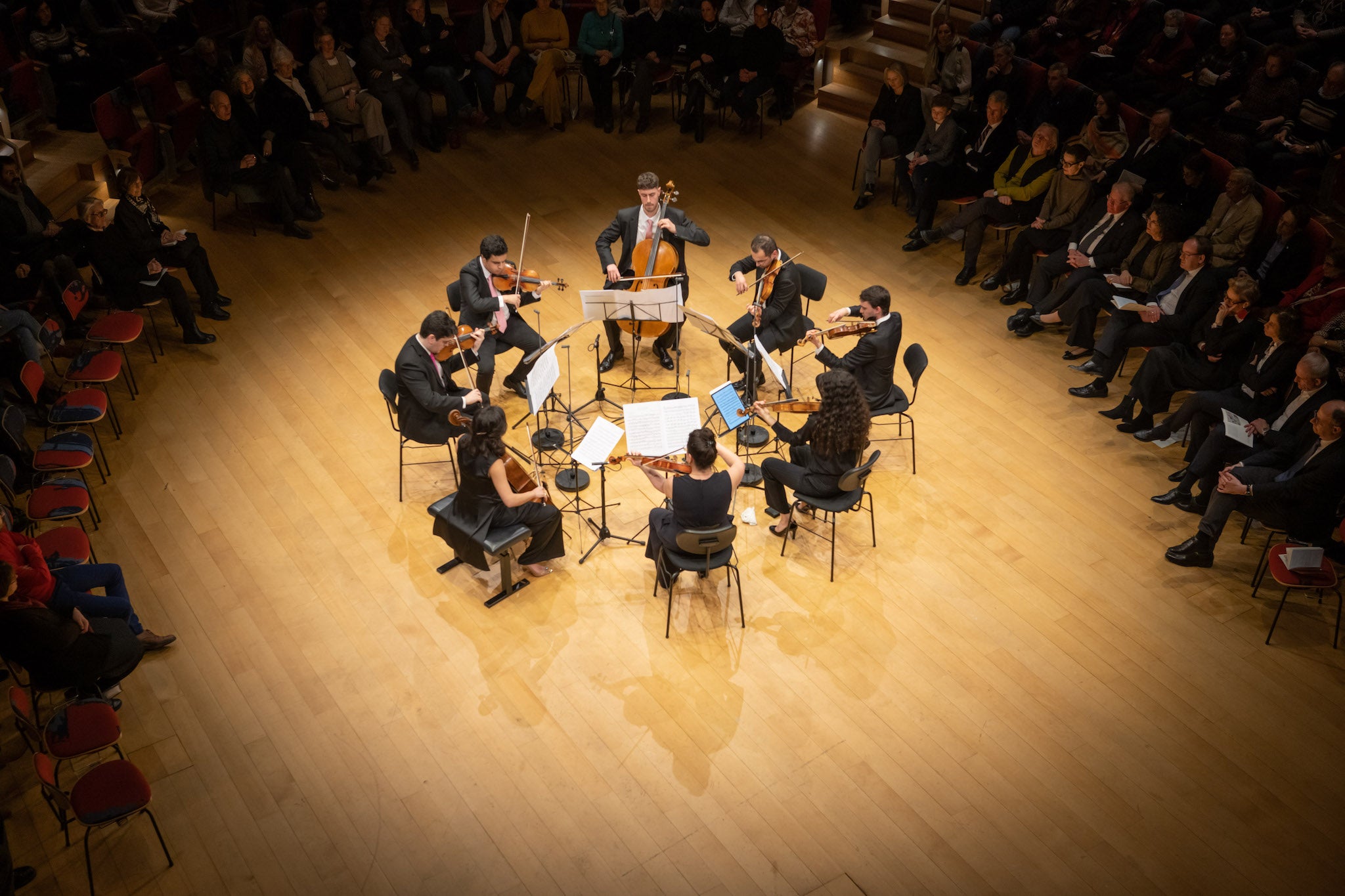In the West-Eastern Divan Orchestra, Israeli and Palestinian musicians play for peace
The young instrumentalists of Daniel Barenboim’s orchestra play music to show ‘another aspect of the Middle East... that we can be better than what you see on the news’. Ahead of next week’s concert in London, Michael Church talks to Barenboim’s violinist son Michael to reveal the orchestra’s defiant history and its hopes for the future

As the casualties climb and the divide between Israel and Palestine deepens, the question remains: how do the communities traumatised by the horrors of this past month find a way to live together?
One very unexpected ray of hope will be in evidence next Saturday at London’s Southbank Centre. An elite ensemble of young musicians from Israel and Palestine – led by violinist Michael Barenboim, son of Daniel Barenboim, whose vision this orchestra is – will give a chamber concert.
The West-Eastern Divan orchestra may have been formed in 1999, but the origins of their name, and the concept they embody, dates back to the early 19th century. “Divan” is the Persian word for “collection of poems”, and West-Eastern Divan was the title which German poet Johann Wolfgang von Goethe gave to his 1819 anthology of poems in the Persian style. When he wrote those poems he was exploring, with astonishing prescience, the cultural possibilities of cross-fertilisation between the so-called Orient and Occident. For most Germans in Goethe’s time, the Muslim world was the threatening outsider; the unknown “Other”. By learning Arabic and immersing himself in the work of the mediaeval Persian poet Hafiz, Goethe was proposing and pioneering a unique literary rapprochement.
Subscribe to Independent Premium to bookmark this article
Want to bookmark your favourite articles and stories to read or reference later? Start your Independent Premium subscription today.
Join our commenting forum
Join thought-provoking conversations, follow other Independent readers and see their replies